What are Preserved Fruit
Preserved fruits are a delightful and enduring form of fruit consumption, offering a taste of sweetness and nostalgia all year round. Unlike fresh fruit, preserved fruit has undergone a process to ensure it maintains its quality and edibility over extended periods. This preservation allows consumers to enjoy the flavors of seasonal fruits even when they are not naturally available. The target audience for preserved fruits includes consumers looking for convenient snacking options, culinary enthusiasts seeking to incorporate fruit flavors into their recipes, and businesses that require a stable supply of fruit ingredients that won't spoil quickly.
The principle behind preserving fruits is based on reducing the moisture content and/or altering the environment to inhibit the growth of microorganisms that cause decay. Various methods can be used, such as drying, candying, pickling, or immersing the fruits in preserving substances like syrup or brine. Each method creates different textures, tastes, and uses for the preserved fruits. Drying, for instance, yields a chewier texture and concentrates the fruit's natural sugars, making them ideal as snack items or additions to cereals and baked goods. Syrup preservation keeps the fruit tender and sweet, often used as dessert toppings or mixed into cocktails.
For individuals or businesses looking for preserved fruits, Alibaba.com offers a wide range of options that cater to various preferences and uses. Whether it's for direct consumption, culinary applications, or as part of a food product line, preserved fruits provide a versatile solution with a longer shelf life compared to fresh alternatives.
Types of Preserved Fruit
Preserved fruits come in many forms and flavors on Alibaba.com, each with its unique characteristics and common use cases:
Dried Fruits: These are fruits from which the majority of the original water content has been removed either naturally or through sun drying or dehydration techniques. Dried fruits like apricots, raisins, dates, and figs are commonly used in baking, cooking, and snacking.
Candied Fruits: Also known as crystallized fruits, these are submerged in sugar syrup and then air-dried. Candied ginger, cherries, pineapple, and citrus peels are popular in confectionery applications or as decorative accents for desserts.
Pickled Fruits: Often found in cuisines around the world, fruits like mangoes, lemons, or cherries are preserved in brine or vinegar. These offer a balance of sweet and sour flavors ideal for savory dishes or as gourmet condiments.
Fruit in Syrup: Here the fruit is canned or jarred in heavy sugar syrup which acts as a preservative. These can be used straight from the jar as dessert toppings or components in sweet dishes.
Salted Preserved Fruits: Commonly found in Asian markets, these involve preserving fruits like plums or olives in salt to create a unique flavor profile suitable for snacks and flavoring other dishes.
How to choose Preserved Fruit
Selecting the right preserved fruit requires considering several factors that align with business needs and customer preferences. For instance:
Type of Preservation: The preservation process affects taste and texture. Businesses should consider whether dried, candied, pickled, or syrup-preserved fruits best suit their products or menu items.
Packaging: Bulk packaging might be more economical for large-scale use while gift packaging offers added value for retail purposes. Vacuum packs ensure freshness over longer periods which is ideal for distribution.
Taste Profile: Sweetness levels vary greatly among preserved fruits; some businesses might prefer naturally sweet varieties while others might require sour or salty options to complement their product lines.
Cultivation Type: Whether organic cultivation practices are important will influence choice; some buyers prioritize non-GMO or organic certified products due to customer demand for natural foods.
When choosing preserved fruit on Alibaba.com for B2B sales, it is important to consider these factors alongside volume requirements and potential customization options offered by suppliers.
Best Preserved Fruit on Alibaba.com
Alibaba.com stands as an expansive marketplace where businesses across the globe can find an impressive variety of preserved fruits suited to their unique needs. With offerings from numerous suppliers worldwide, businesses have access to an extensive array of choices that can satisfy any culinary requirement or consumer preference without being constrained by seasonality. The platform's commitment to facilitating ease in doing business anywhere translates into a user-friendly experience where buying decisions are supported by detailed product descriptions and supplier transparency.
The breadth of Alibaba.com's inventory allows businesses to explore diverse tastes and textures from dried mangoes that add a tropical zest to snack mixes to candied cherries that can adorn decadent pastries. Moreover, Alibaba.com's services extend beyond simple transactions by providing Trade Assurance – a verification service that ensures payments are secure and orders meet expectations before finalizing transactions. This assurance is complemented by comprehensive order handling and delivery services that streamline the procurement process for businesses around the world. Choosing Alibaba.com means partnering with a platform dedicated to quality selection and reliability; thereby empowering businesses to elevate their offerings with premium preserved fruits all year round.
Common FAQs for Preserved Fruit
What are the primary methods of fruit preservation used in preserved fruits?
The primary methods include drying, candying, pickling, preserving in syrup or brine, and salting. Each method alters the texture and flavor profile of the fruit.
How does the packaging affect the quality of preserved fruits?
Packaging such as vacuum packs, cans, and jars play a crucial role in maintaining the quality and extending the shelf life of preserved fruits by protecting them from moisture, air, and contaminants.
Can the taste of preserved fruit be customized?
Yes, suppliers may offer customization options for taste profiles including sweet, sour, and salty. This can be achieved through the preservation process or added ingredients.
What should be considered when selecting a cultivation type for preserved fruits?
Consider consumer preferences and market demand for non-GMO or organic products. The cultivation type can influence both the taste and the perceived quality of the preserved fruit.
How does the drying process affect preserved fruits?
The drying process removes moisture which concentrates the natural sugars in fruits, leading to a sweeter taste and chewier texture. It can be done through air-drying (AD) or freeze-drying (FD).
What types of businesses typically purchase preserved fruits?
Businesses such as food manufacturers, bakeries, confectioners, snack producers, restaurants, and retailers that require a stable supply of fruit flavors for their products or menus are typical buyers.
Are there any size or shape options for preserved fruits?
Preserved fruits can come in various sizes and shapes including whole, sliced, round, ball, long, cube etc., depending on their intended use and consumer preference.
How can preserved fruits be used in culinary applications?
They can be used in baking, as toppings for desserts, included in snack mixes, utilized as flavor enhancers in savory dishes, or even served as part of a cheese platter.
Is there a difference between natural sweet and artificially sweetened preserved fruits?
Natural sweet preserved fruits retain their original sugars while artificially sweetened ones have added sugars or sweeteners. The choice depends on dietary requirements and flavor preferences.
Are there color varieties available in preserved fruits?
Yes, preserved fruits come in various colors such as yellow, red, white, green, and brown which can be indicative of the type of fruit or additional coloring agents.
What occasions are suitable for using preserved fruits?
Preserved fruits can be used for a variety of occasions including holidays like Christmas or Chinese New Year, as well as for personal celebrations or as everyday snacks.
How long can preserved fruits last?
The shelf life varies depending on the preservation method used but generally ranges from several months to a few years when stored properly.
What factors should be considered when choosing flavors of preserved fruit?
Factors include the intended use (e.g., cooking vs. snacking), target market's taste preferences (e.g., preference for exotic vs. traditional flavors), and any specific dietary needs (e.g., reduced sugar content).
How can businesses ensure they're purchasing high-quality preserved fruit?
Businesses should look for suppliers with good reviews and certifications where applicable. They can also request samples to assess quality before making large purchases.
Are there any specific storage requirements for preserved fruits?
Preserved fruits should be stored in a cool, dry place away from direct sunlight. Some might require refrigeration once opened to maintain quality.
Can businesses request custom packaging for their preserved fruit orders?
Many suppliers are willing to accommodate custom packaging requests such as bulk orders or branded packaging to meet business needs.





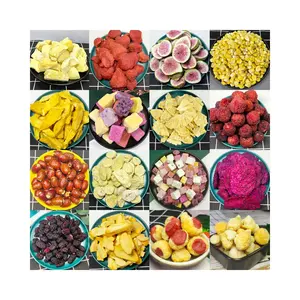

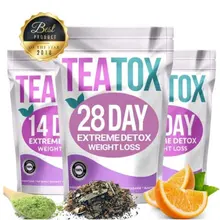

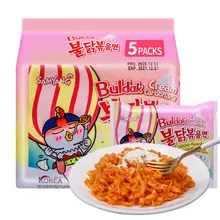
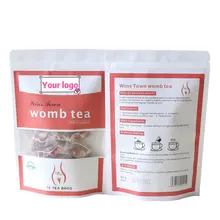







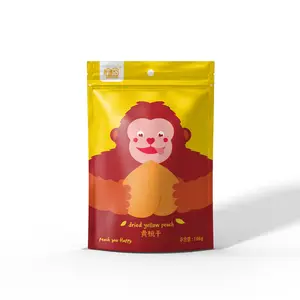






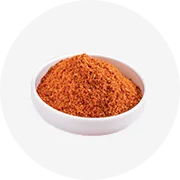

















 浙公网安备 33010002000092号
浙公网安备 33010002000092号 浙B2-20120091-4
浙B2-20120091-4